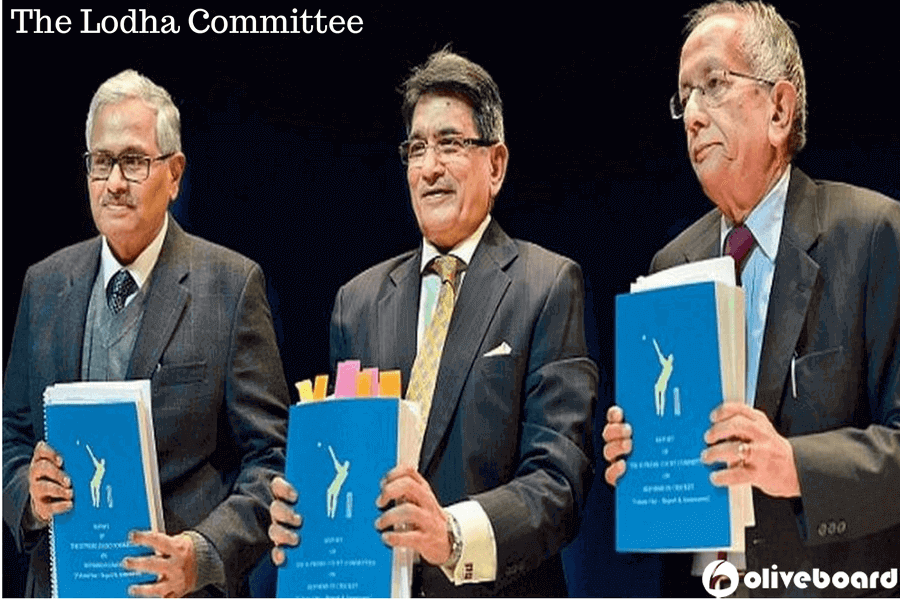The Lodha Panel has been in the news for quite some time now. In this post, we bring to you all the major points regarding the same. This will be of great use when you’re preparing for your interviews in the upcoming months.
What is the Lodha Committee?
The Lodha Panel was set up by the Indian Supreme Court in January 2015, following allegations of corruption, match fixing and betting scandals in Indian cricket. The committee was set up in an attempt to bring back law and order into the BCCI and the game of cricket. The committee comprised of three members, namely: RM Lodha (Retd. Chief Justice of India), Ashok Bhan and R. Raveendran (both retired Supreme Cort judges).
When was the first time the Lodha Committee made headlines and why?
In July 2015, the Lodha Committee decided to suspend two teams, Chennai Super Kings and Rajasthan Royals, for a period of two years, and banned their owners, Gurunath Meiyapppan and Raj Kundra, for life over spot-fixing and betting charges.
In January of 2016, the committee recommended a complete overhaul of Indian cricket, thus affecting everyone involved. That time, the BCCI reacted to it by filing a counter-affidavit which was rejected by the Supreme Court. BCCI was given a period of six months to carry out the suggested reforms under the supervision of the committee.
Though the BCCI said that it would incorporate all changes, none of them were done. Following this, the Supreme Court gave the cricket board and ultimatum, saying “no changes, no funds”. Despite this, the BCCI failed to act on the reforms.
Latest Developments?
On 2nd January 2017, Supreme Court ordered the removal of board president Anurag Thakur and secretary Ajay Shirke for defiance and delaying the reforms recommended by the panel. The Court also issued a contempt notice to Anurag Thakur for perjury.
The top recommendations of the Lodha Committee are as follows:-
1) Divide the governance into two parts: cricketing and non-cricketing.
- The non-cricketing management will be handled by 6 professional managers headed by a CEO
- Cricket decisions, like selection, coaching and performance evaluation should be left to the players
2) BCCI should come under the RTI act.
3) Betting should be legalized, for the public (barring cricket players, officials and administrators).
4) Match-and spot-fixing to be made a criminal offence.
5) The players and BCCI officials should disclose their assets to the board so as to ensure they do not indulge in betting.
6) No BCCI office bearer should have more than two consecutive terms.
7) No BCCI office-bearer should be Minister or government servant.
8) No BCCI office-bearer to be above 70 years of age.
9) There should be separate governing bodies for the IPL and the BCCI and a 15-day gap between IPL season and national calendar.
10) One state, one vote policy. This means, even a large state with multiple representatives will have one vote (as a single state). States like Maharashtra and Gujarat were earlier having multiple representations and voting rights.
11) A 9-member apex council replace the 14-member BCCI working committee. Each of these office-bearers has a three-year term and can contest for a maximum three terms.
12) Setting up of a Players’ Association to safeguard the interests and give a voice to the cricketers.
13) Formation of a Women’s Cricket and Selection Committee to ensure equal attention.
As per the last update, both Anurag Thakur and Ajay Shirke had stepped down and the national and state associations were working towards implementing the recommendations of the Lodha Panel.
We hope this article helps you in understanding the basis of the Lodha Panel recommendations.
All the best.

The most comprehensive online preparation portal for MBA, Banking and Government exams. Explore a range of mock tests and study material at www.oliveboard.in
